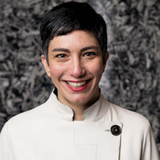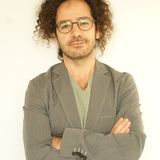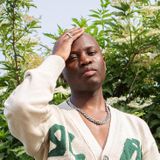In the new and final Designing Cities For All: RE-generation series City Games in the Age of Urban AI DCFA fellow Ekim Tan, director of Games For Cities and founder of Play The City , explores the role of city games in the era of artificial intelligence. This series aims to advance research by design, highlighting the need for engagement to achieve real impact. With Urban AI entering city practices, the series will examine how city games can enhance democratic practices and inspire spatial design within increasingly digitized communities. It seeks to explore the future of urban living, using the power of city games and AI to create more inclusive, connected, and future-proof cities.
The third and last episode of City Games in the Age of Urban AI series, Design, with DCFA Fellow Ekim Tan , delves into the consequences of AI and city games in the work field of designers. We will explore how these technologies can shape the future of designers’ roles in shaping the future of our cities. How can AI foster new agencies, amplify underrepresented voices, and shift the role of designers?

About the DCFA Fellow
Ekim Tan is an architect from Istanbul based in Amsterdam. She obtained her doctoral degree at the Delft University of Technology with a focus on ‘ City gaming ‘, a method that refers to the specific implementation of serious games to city development questions. Later she published her book, Play the City: Games Informing Urban Development (2017) to provide a deeper understanding of our values, experiences, and intellectual attitude. In 2010, she founded Play the City , an Amsterdam and Istanbul-based city gaming practice that helps governments and market parties effectively collaborate with stakeholders. In 2016, Ekim co-founded Games for Cities , an umbrella organization of game[like] practices worldwide. Play the City leads the way in applying games to complex, multiplayer city challenges.
About the speakers
Roni Bulent Ozel is a double PhD AI expert based in Amsterdam, NL. He is a co-founder of Lucidminds AI, an initiative focused on nature-centric complex system design & analysis impacting social, economic, and environmental domains.
Mayra Kapteijn is a social psychologist and designer. She believes that technology can better serve the public interest when psychology and design ethically reinforce each other. Over the past ten years, she has worked on impactful startups such as Peerby and 29k (in Sweden), and in the public sector, where she has contributed to five systemic changes within healthcare, wellbeing, and public spaces. With the power of design, she aims to create a world where people can play more, listen better, and where everyone feels part of a network.
Babusi Nyoni is a Zimbabwean creative technologist, social entrepreneur, and innovator whose work transcends traditional boundaries, leveraging technology to address complex social issues across Africa and beyond. His projects over the years highlight his commitment to utilising emerging technologies for societal benefit, with a particular focus on healthcare, digital accessibility, and community empowerment. Babusi Nyoni’s work in the digital realm showcases his innovative approach to technology, with significant projects like the “African Metaverse Framework,” which makes digital spaces accessible to African communities.
About Designing Cities for All: RE generation
Over the first two years of Designing Cities for All (DCFA), we’ve learned about exclusion by design and the (re)design of inclusive cities. Along the journey, a certain question kept popping up: what exactly does ‘for all’ entail? After focusing mostly on the ‘who’ over the past two years, DCFA is rebooting as Designing Cities for All: RE-generation. This way around, the series is also incorporating the ‘what’ by looking through the fresh lens of regenerative design. This emerging field might very well be a promising answer to the challenges of our time, as it focuses on the design of products, services, systems, and processes that lead to both social and ecological recovery and that keep the systems healthy.








